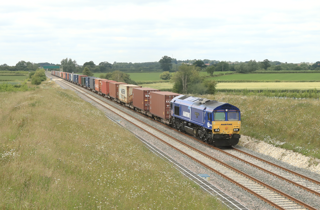The rail industry contributes £10.1 billion to the UK, according to new research.
The industry also created benefits for rail passengers and freight users worth £14.3bn in 2014. And the rail sector made the UK economy more productive by up to £11.3bn by offering an alternative to road travel, according to the research, released on September 21.
Oxera has prepared a report entitled What is the contribution of rail to the UK economy? for the Rail Delivery Group. It said that rail passenger and freight operators in Great Britain, and their supply chain, employ more than 200,000 people, contributing £10.1bn to the economy.
The contribution is measured in gross value added (GVA). It is made up of £6.3bn of GVA in the rail industry itself and £3.8bn from the supply chain.
Oxera reports that the industry pays more than £4bn per year in tax to the Exchequer each year. This is broken down into £2.7bn of tax receipts from the rail industry itself, and £1.4bn from the rail supply chain.
Martin Griffiths, RDG chairman and chief executive of Stagecoach Group, said: “The railway and its supply chain are vitally important to every household in the country, linking people with jobs, paying taxes which help fund public services, and increasing economic output.
“While other European countries have invested heavily in their railways, none has come close to matching the success of ours because they don’t benefit from the winning combination of private sector innovation and government funding.”
















Login to comment
Comments
No comments have been made yet.